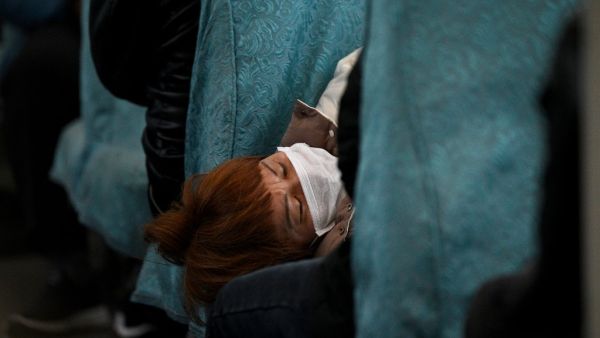In early March, the World Health Organization declared that coronavirus's global outbreak qualifies as a pandemic, with containment efforts unlikely to succeed.
The novel coronavirus 'Covid-19' had originated in Wuhan, a major city in China's Hubei province, in late December.
Since then, it has spread to the rest of Asia, Europe, North Africa, and the wider world.
The first case of coronavirus to hit the Middle East was detected in the UAE in early February. Since then, clusters of the contagious disease emerged in Iran, now one of the most hard hit countries outside Chinia; and it is feared the virus has taken hold in Egypt.
With every passing day, more and more tourists returning to their countries from the popular North African destination are testing positive for Covid-19, but the authorities there have been accused of covering up the real figures.
As of March 12, the number of confirmed cases across the Middle East and North Africa region has surpassed 10,000.
In the coming weeks and months, the world's nations will hope to slow down its spread instead, through 'social distancing', ramped up hygiene, and restrictions on travel, although experts are divided on how extreme the level of these measures should be.
Many are hoping warmer temperatures will have a curbing effect on the contagion.
The virus is causing disruption and upheaval on a hitherto unseen scale.
Already ravaged by conflict, poverty, inequality, and poor governance, the MENA region is among the worst prepared for this outbreak.
MENA economies have been hit hard by the virus. Nations that rely on oil revenues are reeling as global demand for oil collapses, while those that rely on tourism and services face an uncertain future as visitors stay away and governments take draconian measures, effectively shutting down their entire public sphere to contain the virus, such as the case of Lebanon.
There are political and humanitarian ramifications too, from the Syrian refugee question in the light of the regional outbreak, to the effect of authoritarianism on government responses, and the Israeli capitalisation on the crisis to further clampdown on Palestinians in the occupied territories.
But with these bleak times, come stories of solidarity and heroism, from Iraq to Lebanon, as health workers risk their lives to protect patients and the larger community.
Throughout this challenging time, The New Arab's team will provide sensitive and meaningful coverage of the coronavirus story, questioning the efforts of those in power to protect their citizens in the region, and delivering facts, analysis and stories of bravery and resilience.
This article has been adapted from its original source.








